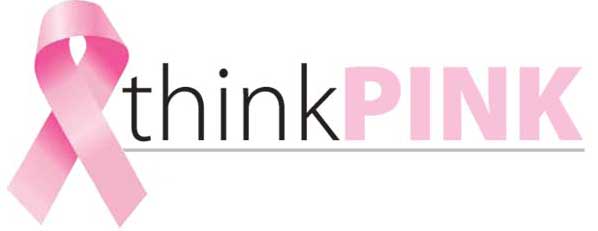The National Cancer Institute says that weight gain is a major risk factor for developing breast cancer. Gaining weight in adulthood appears to increase the risk of breast cancer before and after menopause. One large study found that women who gained about 20 pounds after age 18 had a 15% higher risk of breast cancer compared to women who gained little or no weight. Women who gained 55 pounds or more had a 45% high risk. It is important for both men and women to keep a healthy weight. Managing weight is a challenge for most people in the U.S. In Fact, according to the Centers for Disease Control and Prevention (CDC), about 69% of American adults are over weight.
Breast Cancer & Obesity
Obesity & Breast Cancer Risks
The National Cancer Institute says that weight gain is a major risk factor for developing breast cancer.
Gaining weight in adulthood appears to increase the risk of breast cancer before and after menopause.
One large study found that women who gained about 20 pounds after age 18 had a 15 percent higher risk of breast cancer compared to women who gained little or no weight. Women who gained 55 pounds or more had a 45 percent higher risk.
AFTER MENOPAUSE:
The increased risk of postmenopausal breast cancer is thought to be due to increased levels of estrogen in obese women. Women’s breast cells are exposed to the growth supporting effects of female hormones; estrogen & progesterone. After menopause, when the ovaries stop producing hormones, fat tissue becomes the most important source of estrogen. Because obese women have more fat tissue, their estrogen levels are higher, potentially leading to more rapid growth of estrogen-responsive breast tumors. Women who are overweight or obese after menopause have a 30 to 60 percent higher breast cancer risk than those who are lean.
Can Men Develop Breast Cancer?
True or False? Only women can get breast cancer? FALSE
Although being a woman is the main risk factor for developing breast cancer. Each year breast cancer is diagnosed in about 23,000 women & 2,100 men.
Many men think that only women can develop breast cancer, which causes some men to ignore breast lumps until the cancer has spread too far to be curable.
Risk Factors
True or False? There is nothing a woman with average risk can do to reduce her risk of developing breast cancer? FALSE
Many Breast Cancer Risk Factors are things that you cannot change.
-Age
-Family History
-How old you were when you started and stopped having menstrual periods.
There are however breast cancer risk factors that you do have control over!
1. WEIGHT
Achieving and maintaining a healthy
weight throughout life is recommended to
reduce your risk of breast cancer, as well as several other forms of cancer, disease and diabetes.
2. PHYSICAL ACTIVITY
Being active decreases a woman’s risk
of developing breast cancer. On average
highly active women are 25% less likely to develop breast cancer. One large study found that walking 75 to 150 minutes during the entire week can also reduce breast cancer risk by 18%. Which is only about 20 minutes per day.
3. DRINKING ALCOHOL
Compared to women who do not drink
any alcohol, there is a 10%-20% higher
risk of breast cancer associated with each
drink per day. Excess alcohol use is also known to increase the risk of developing cancers of the mouth, throat, esophagus, and liver.
Reoccurrence of Breast Cancer
Women who are obese at the time of breast cancer diagnosis have approximately 30% higher risk of reoccurrence and nearly 50% higher risk of death, then those who were normal weight.
Obesity’s Link to 13 Types of Cancer
A review of more than a thousand studies has found solid evidence that being overweight or obese increases the risk for at least 13 types of cancer.
Strong evidence was already available to link five cancers to being overweight or obese: cancer of the esophagus; colorectal cancer; breast cancer in postmenopausal women; and uterine and kidney cancers.
A new review, published in The New England Journal of Medicine, links an additional eight cancers to excess fat: gastric cardia, a cancer of the part of the stomach closest to the esophagus; liver cancer; gallbladder cancer; pancreatic cancer; thyroid cancer; ovarian cancer; meningioma, a usually benign type of brain tumor; and multiple myeloma, a blood cancer.
These 13 cancers together account for 42 percent of all new cancer diagnoses.
Weight Loss Reduces Risk
Managing weight is a challenge for most people in the US. In fact, according to the Centers for Disease Control and Prevention (CDC), about 69% of American adults are overweight.
Losing weight after menopause may help lower risk of breast cancer. One large study found women who lost four to 11 pounds after menopause had more than a 20 percent lower risk of breast cancer compared to women whose weight did not change.
It is important for both men and women to keep a healthy weight. The National Institutes of Health recommend that by keeping a thin waist and keeping your
intra-abdominal down significantly decreases your risk of developing not only breast cancer but a wide variety of medical diseases. Measure at your belly button the goals for waist measurement are; Men=40" and Women=35".



